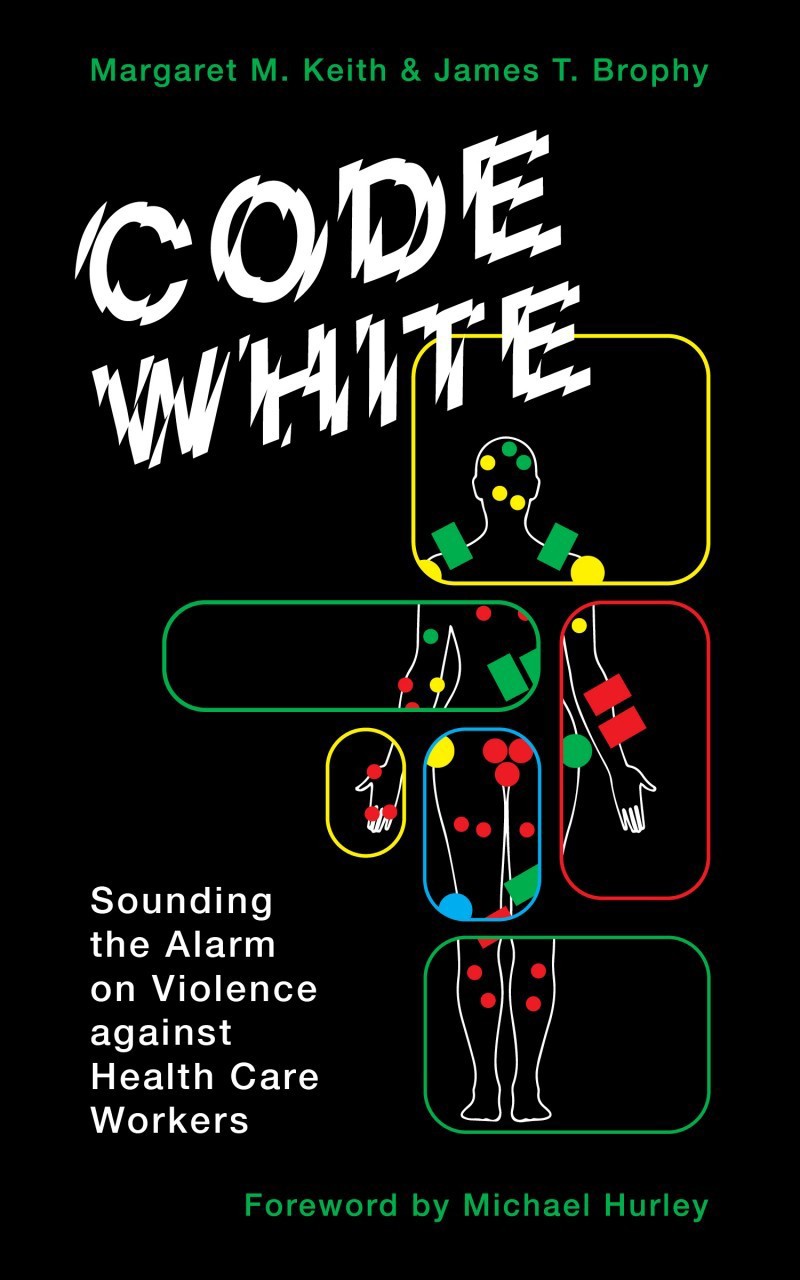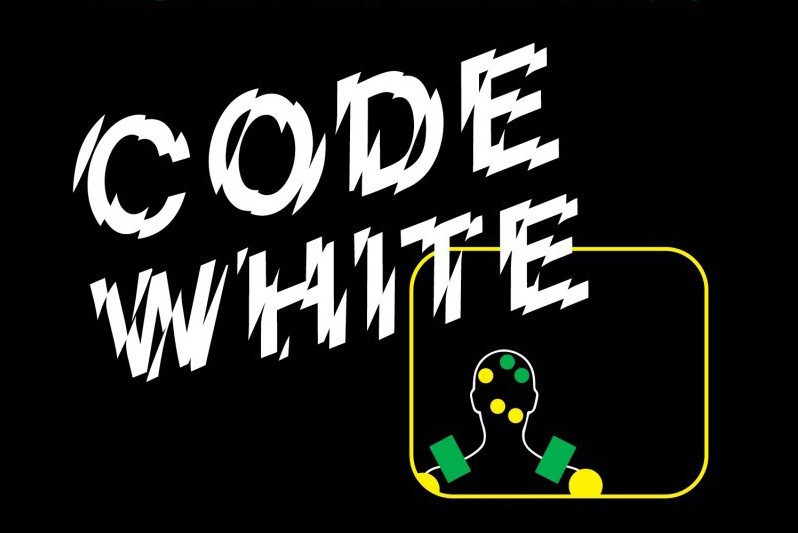As a nurse and advocate who cares deeply about social justice and issues impacting the healthcare profession, especially as the pandemic continues, I was hooked on reading Code White in the first few pages. During my 15 years of nursing, I’ve experienced many things, including, when I worked in hospital, hearing the words “code white” called over the intercom at least a few times each day. A code white means a violent person on the premises. They may be a patient, a patient’s family member or even someone from the general public.
These colour codes exist so people won’t be alarmed when staff are notified of an emergency. What should alarm people, though, is that healthcare workers experience higher rates of violence than police officers do.
I consider myself very lucky that I haven’t yet experienced physical violence on the job during my years in healthcare. Many of my colleagues have not been so lucky. Even when we were starting out as nursing students, some of my female classmates reported having their breasts grabbed by male patients with dementia. From what I’ve seen, this is very much a gender-based issue: the male nurses I have spoken to over the years experienced no physical violence on the job.
What amazed me about Code White is the sheer number of personal stories it presents, and how vividly these stories demonstrate that other healthcare workers face challenges mirroring those we nurses face: the fear, the guilt, the silencing, the difficulty reporting incidents, the retribution when one does, and the lack of action in response to violence.
Of course, the book’s stories don’t include those of healthcare workers who did not live to tell the tale — those who were killed on the job by patients, patients’ families or by their own colleagues.
Code White is a unique account of the deterioration of the healthcare system. It looks at the real situations and barriers denying healthcare workers a safe workplace, and most importantly, it presents solutions on both individual and societal levels.
The book is divided into eight chapters and takes a deep dive into exposing the hidden epidemic of violence in healthcare, conducting a forensic examination to lay bare the roots of that epidemic, and then offering a “prescription for healing.” The authors expertly weave the narrative together while sharing first-hand stories told by nurses, personal support workers (PSWs), ward clerks and many others. Keith and Brophy are gifted writers, and it’s evident that, through their decades of work, they have developed a strong passion for raising awareness about workplace violence and advocating for its prevention.

Code White was a gripping and emotional read for me. For instance, workers’ struggles qualifying for workplace compensation reminded me of my own struggles trying to obtain compensation for mental health challenges I had experienced in the past.
It was also shocking to read that in long-term care environments, almost 90 per cent of PSWs and registered practical nurses (RPNs) experience physical violence on the job. “I was screaming at the top of my lungs” was the only way one nurse could get help during a vicious attack. After an assault, workers are often told to go back to caring for the very patient who just attacked them.
It resonated deeply to read passages like these: “Crowded ERs breed patient frustration, anger, aggressive and occasional horrific violence . . . On every shift, in every emergency department in Canada, a staff member is subjected to harassment, abuse and assault.”
While reading the book, I realized that it’s almost as if many healthcare professionals are held captive in abusive relationships with their workplaces. They know in theory that they can quit any time but, in reality, there are so many barriers preventing them from leaving their employer. Many of them really love other elements of their job, such as their friendships with their colleagues and the act of caring for others. They also loathe the idea of losing a career they’ve spent many years building. And, of course, there is the financial aspect. Many racialized women, particularly PSWs with families to support, know they have no other employment options that pay as well.
As a Chinese-Canadian racialized nurse, reading the stories about having to endure racial slurs was disturbing. It is never okay to accept that these, or any hateful comments, are just “part of the job.” Employers and governments need to do better. These stories brought me right back to when I worked as a PSW in the community while training to be a nurse. I had many uncomfortable interactions with older male clients not only because I was a young woman, but also because they would make comments about my ethnicity, based on stereotypes about Asian women.
While reading this book, I also couldn’t help but feel I had dodged a bullet years ago by quitting another PSW job, this time in long-term care, after a few short weeks. The workload was just too heavy.
I would highly recommend everyone read this book, because at some point in all of our lives, we will need the care and compassion of a nurse, PSW or other healthcare professional. It is time the public becomes aware of this hidden epidemic, and time that we start educating everyone about workplace violence in healthcare. I can certainly attest to the fact that the subject was not covered in any detail during my time as a nursing student, or as a nurse. All we were ever taught was to call a code white in response to violent situations. But what we really need are tangible tools, like strategies for prevention, actual escape techniques, and most importantly, more funding and better staffing. We cannot and will not be someone’s punching bag. We deserve better. Kudos to Keith and Brophy, and all the healthcare workers who shared their stories in this book, for calling a code white on the healthcare system.
Sara Fung has been a nurse for 15 years. Her expertise is in maternal child health, obstetrics and the NICU. She has worked as a bedside nurse, educator, advanced practice nurse and professional practice specialist. Sara is passionate about anti-racism, diversity and inclusion, and advocating for better working conditions for healthcare professionals.











